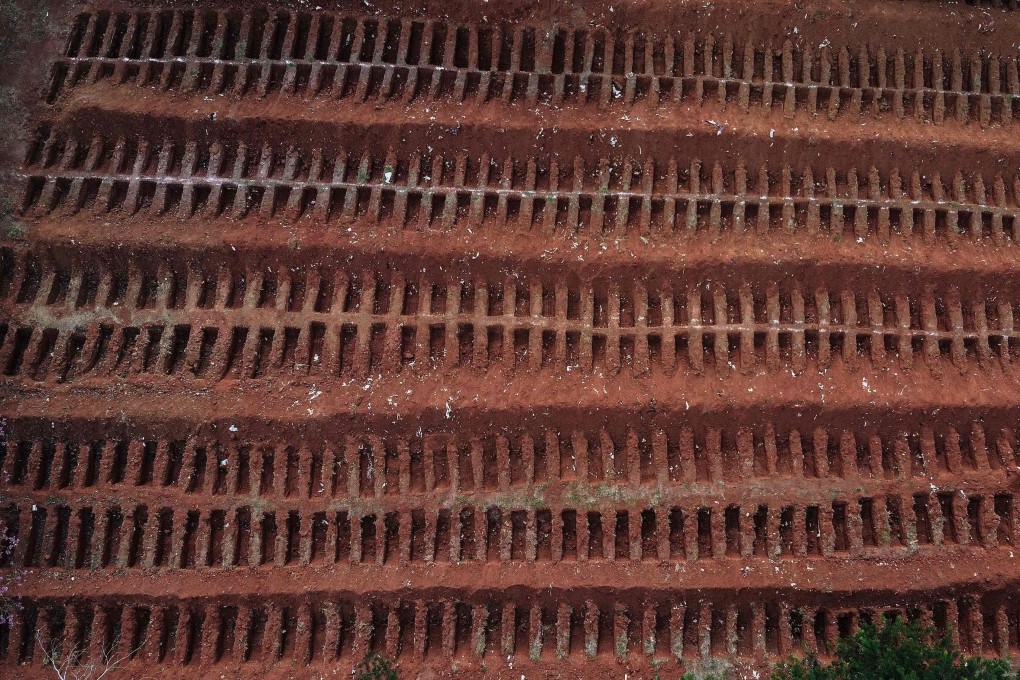Advertisement
Coronavirus latest: global death toll nears 350,000; WHO pauses trial of Trump-backed drug
- WHO suspends trials of hydroxychloroquine as virus treatment; Trump defends decision to play golf as US death toll nears 100,000
- UK PM’s top aide Dominic Cummings defies calls to quit; Spain revises death toll down by nearly 2,000
Reading Time:14 minutes
Why you can trust SCMP

Brazil’s daily coronavirus deaths were higher than fatalities in the United States for the first time, a development that cemented it status as one of the world’s most infected countries.
Brazil registered 807 deaths over a 24-hour period on Monday, whereas 620 died in the US.
It has the second worst outbreak in the world, with more than 374,000 cases, behind the US with 1.66 million cases.
Advertisement
The worst-affected country in South America in the past week has overtaken Spain, Italy, the UK and Russia in number of cases and with more than 23,000 deaths. The World Health Organisation (WHO) has warned Brazil against reopening its economy and the US has banned foreign travellers from Brazil.
In the US, as the pandemic death toll approached the horrific milestone of 100,000, stir-crazy Americans also headed en masse to beaches and parks for the big Memorial Day weekend.
Advertisement
While many Americans wore masks and followed distancing rules, many did not – and images of packed pools and boardwalks triggered fears of a new flare up of the virus that has infected almost than 5.5 million worldwide and killed more than 346,000, according to a Johns Hopkins University tally.
Advertisement
Select Voice
Select Speed
1.00x